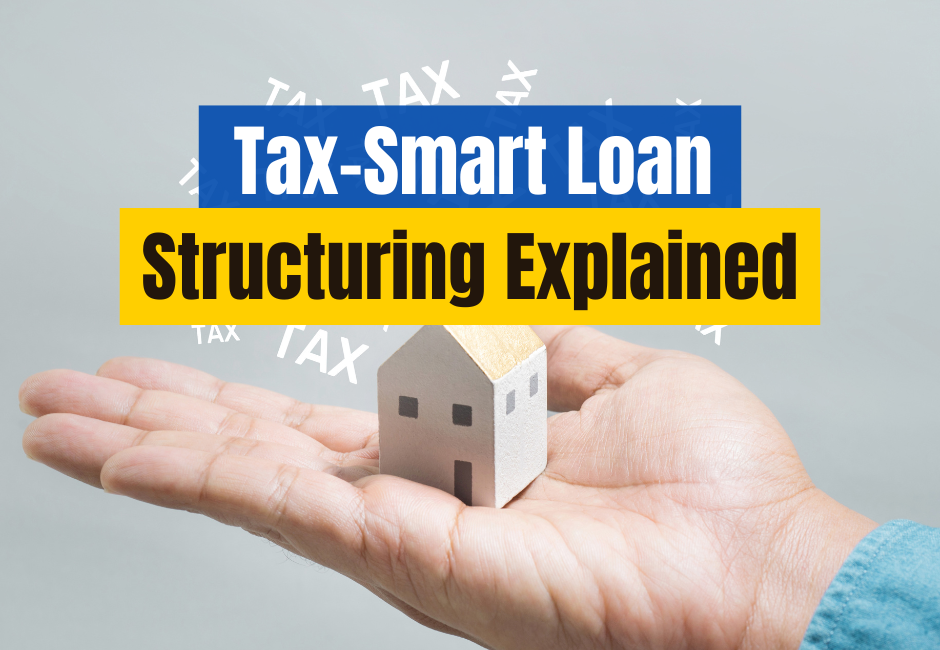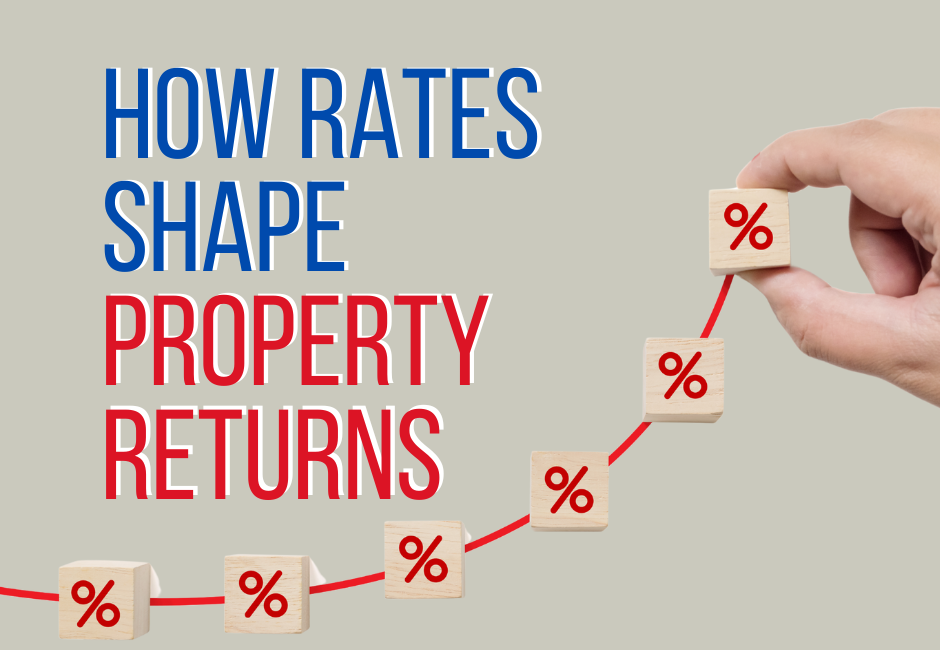
How Does Loan Tenure Impact Your Home Loan Rate and Overall Costs?
When it comes to taking out a home loan, many borrowers focus heavily on the interest rate — and for good reason. But there’s another key factor that plays a massive role in shaping your mortgage costs and experience: loan tenure, or the length of time you agree to repay your loan.
Loan tenure affects more than just how long you’ll be paying off your home. It influences:
- Your monthly repayments
- The total interest you’ll pay over the life of the loan
- And in some cases, the interest rate lenders will offer you
Understanding these dynamics is crucial if you want to make informed decisions and align your mortgage with your broader financial goals.
In this guide, we’ll break down how loan tenure impacts home loan rates and overall costs, explain the trade-offs of shorter and longer terms, and provide practical insights tailored to the Australian market.
What Is Loan Tenure?
Loan tenure refers to the period over which you agree to repay your home loan. In Australia, the most common loan tenures range between 20 and 30 years, though some lenders offer shorter or longer terms depending on your financial profile.
Key Features of Loan Tenure:
- Longer tenure → lower monthly repayments, but higher total interest over time
- Shorter tenure → higher monthly repayments, but significantly lower total interest
It’s a balancing act between affordability today and cost savings over the long run.
How Loan Tenure Affects Home Loan Rates
Many borrowers don’t realise that loan tenure can influence the interest rate a lender offers. Here’s how.
1. Shorter Tenures May Offer Lower Rates
Lenders often view shorter-term loans as lower risk because:
- The debt is repaid faster
- There’s less exposure to long-term economic shifts
- Borrowers tend to have stronger repayment capacity
As a result, shorter-term loans may come with slightly lower interest rates.
2. Longer Tenures May Come With Higher Rates
Longer terms expose lenders to more:
- Economic fluctuations
- Interest rate changes
- Borrower risk over time
Because of this added uncertainty, some lenders may price in a slightly higher interest rate on longer-tenure loans.
3. Fixed vs. Variable Rate Impact
- Fixed rates: Shorter fixed-rate periods (e.g., one to three years) often have lower rates compared to longer fixed terms because lenders can better forecast short-term market conditions.
- Variable rates: These are generally less affected by tenure length but are influenced by the borrower’s risk profile and the lender’s pricing strategy.
How Loan Tenure Affects Overall Costs
Loan tenure dramatically impacts both your monthly repayments and the total interest you pay over the life of the loan.
Monthly Repayments
The longer the tenure, the more time you have to repay the same loan amount, resulting in smaller monthly payments.
Example (Loan: $500,000 at 5% interest):
| Tenure | Monthly Repayment |
| 30 years | $2,684 |
| 25 years | $2,923 |
| 20 years | $3,299 |
| 15 years | $3,952 |
While the 30-year option offers lower monthly repayments, the trade-off comes in the form of total interest paid.
Total Interest Paid
The longer the loan term, the more you pay in cumulative interest.
Example (Loan: $500,000 at 5% interest):
| Tenure | Total Interest Paid |
| 30 years | $466,279 |
| 25 years | $376,902 |
| 20 years | $291,761 |
| 15 years | $211,278 |
In this case, choosing a 15-year tenure over a 30-year tenure saves over $250,000 in interest.
Advantages and Disadvantages of Shorter and Longer Tenures
Shorter Tenures
Advantages:
- Lower total interest costs
- Faster equity buildup
- May qualify for slightly lower rates
Disadvantages:
- Higher monthly repayments
- Less cash flow flexibility
- May limit your ability to save, invest, or cover unexpected expenses
Longer Tenures
Advantages:
- Lower monthly repayments
- More disposable income for other financial goals
- Easier loan qualification due to improved borrowing capacity
Disadvantages:
- Significantly higher total interest costs
- Slower equity growth
- Potential temptation to over-borrow
Factors to Consider When Choosing Your Loan Tenure
1. Financial Goals
- Want to minimise interest and pay off your home fast? Choose a shorter tenure.
- Prefer lower repayments and more cash flow flexibility? A longer tenure may be better.
2. Monthly Budget
Assess your household income, expenses, and savings capacity. Can you comfortably handle higher repayments without overextending yourself?
3. Future Plans
- Planning to stay in the property long-term or retire early? A shorter tenure can help you clear debt faster.
- Expecting to refinance, upgrade, or relocate? A longer tenure may offer useful flexibility.
4. Interest Rate Outlook
- In a rising rate environment, shorter tenures can reduce your exposure to increasing costs.
- In a low-rate environment, longer tenures may be more affordable — but watch out for future rate increases.
5. Lender Policies
Some lenders apply rate discounts or specific eligibility rules depending on the loan term, so check the fine print or work with a broker.
Real-World Examples
Case Study 1: First-Time Buyers
Sarah and Tom are buying their first home in Brisbane for $600,000 with a 20% deposit.
- Option 1: 30-year tenure, variable rate at 5% → $2,579 monthly
- Option 2: 20-year tenure, variable rate at 4.9% → $3,160 monthly
They choose the 30-year option to keep repayments manageable while adjusting to new expenses.
Case Study 2: Refinancing Mid-Career
James, a 40-year-old professional, wants to pay off his $300,000 mortgage before retirement at 55.
- Option 1: 15-year tenure, fixed rate at 5% → $2,372 monthly
- Option 2: 10-year tenure, fixed rate at 4.8% → $3,161 monthly
James opts for the 10-year term to clear his mortgage faster and save on interest.
Tips for Optimising Your Loan Tenure
Use Loan Calculators
Test different scenarios to see how changing the tenure impacts repayments and total costs.
Consider Split Loans
Combine a shorter fixed portion with a variable portion for flexibility and savings.
Make Extra Repayments
Choose a longer tenure for affordability but pay extra when you can — this can significantly reduce the effective loan term and interest costs.
Work With a Mortgage Broker
A broker can help you understand how different tenures affect eligibility, rates, and overall fit for your situation.
Monitor Rate Movements
Stay informed about market trends, especially if you’re considering fixing your rate or shortening your loan term.
Final Thoughts: Why Loan Tenure Matters
Loan tenure is more than just a line on your mortgage paperwork — it’s a powerful financial lever that shapes everything from your monthly repayments to your long-term wealth.
A shorter tenure can save you tens or even hundreds of thousands of dollars in interest, help you build equity faster, and strengthen your financial position. A longer tenure, on the other hand, can make homeownership more accessible, reduce repayment stress, and free up cash for other priorities.
When choosing your loan term, it’s critical to weigh your:
- Financial goals
- Budget
- Risk tolerance
- Lifestyle plans
By carefully considering these factors — and working with trusted advisers — you can secure a home loan that fits your needs and supports your long-term success.




